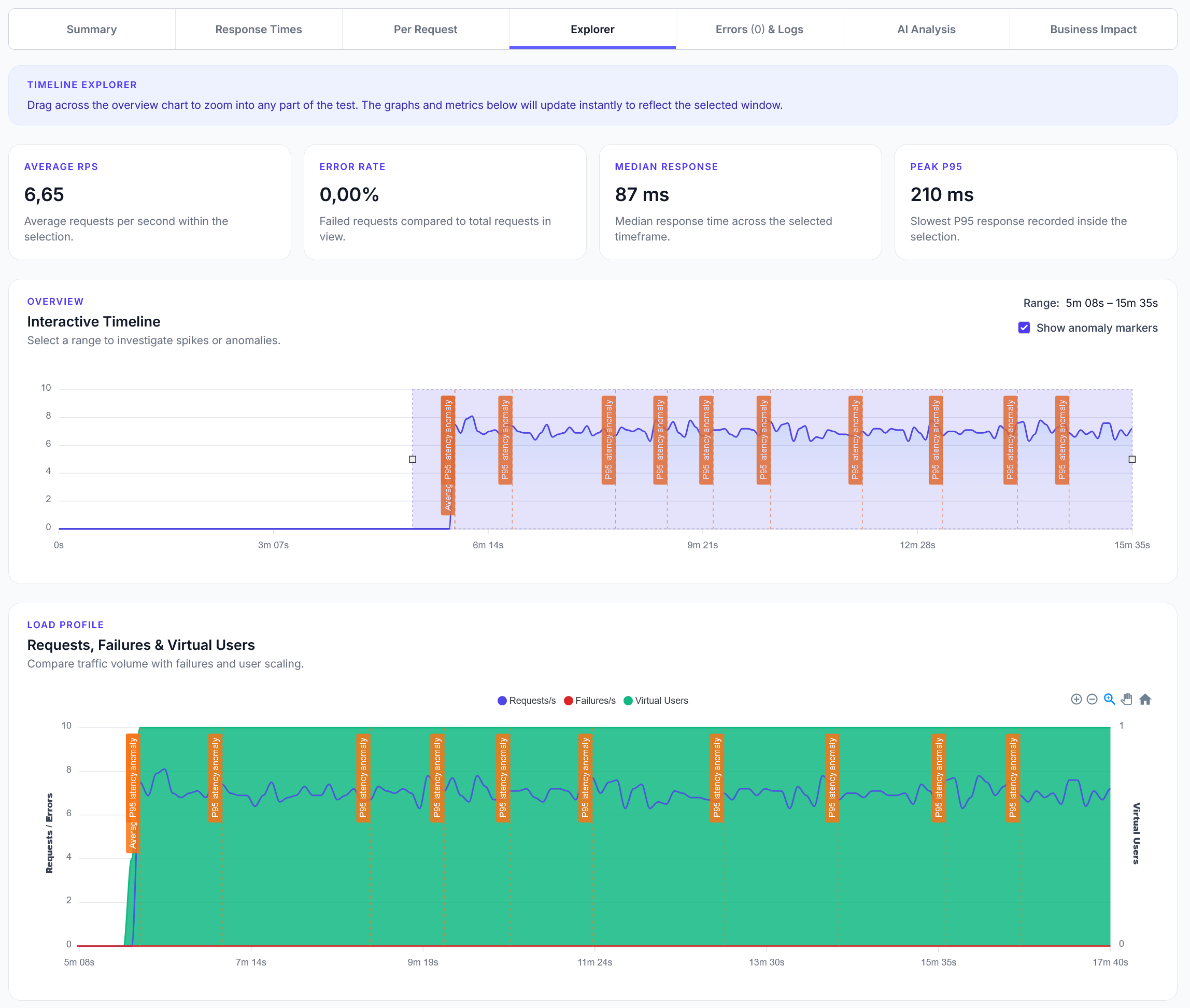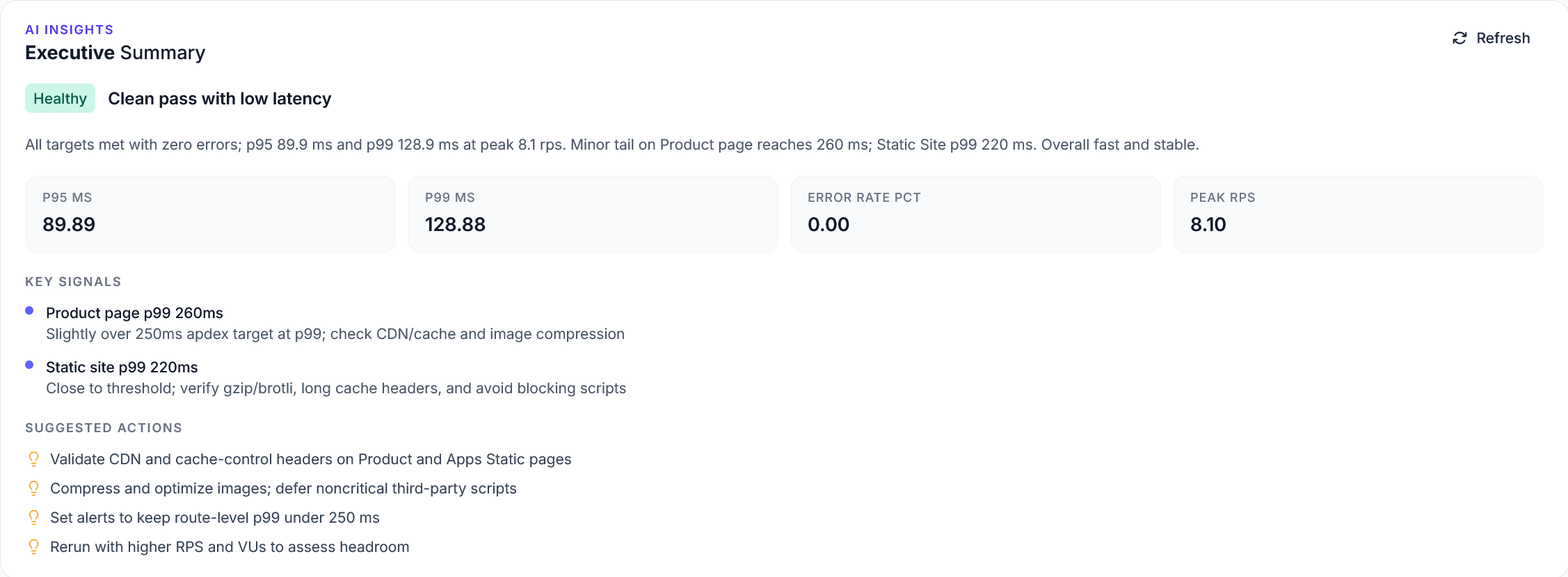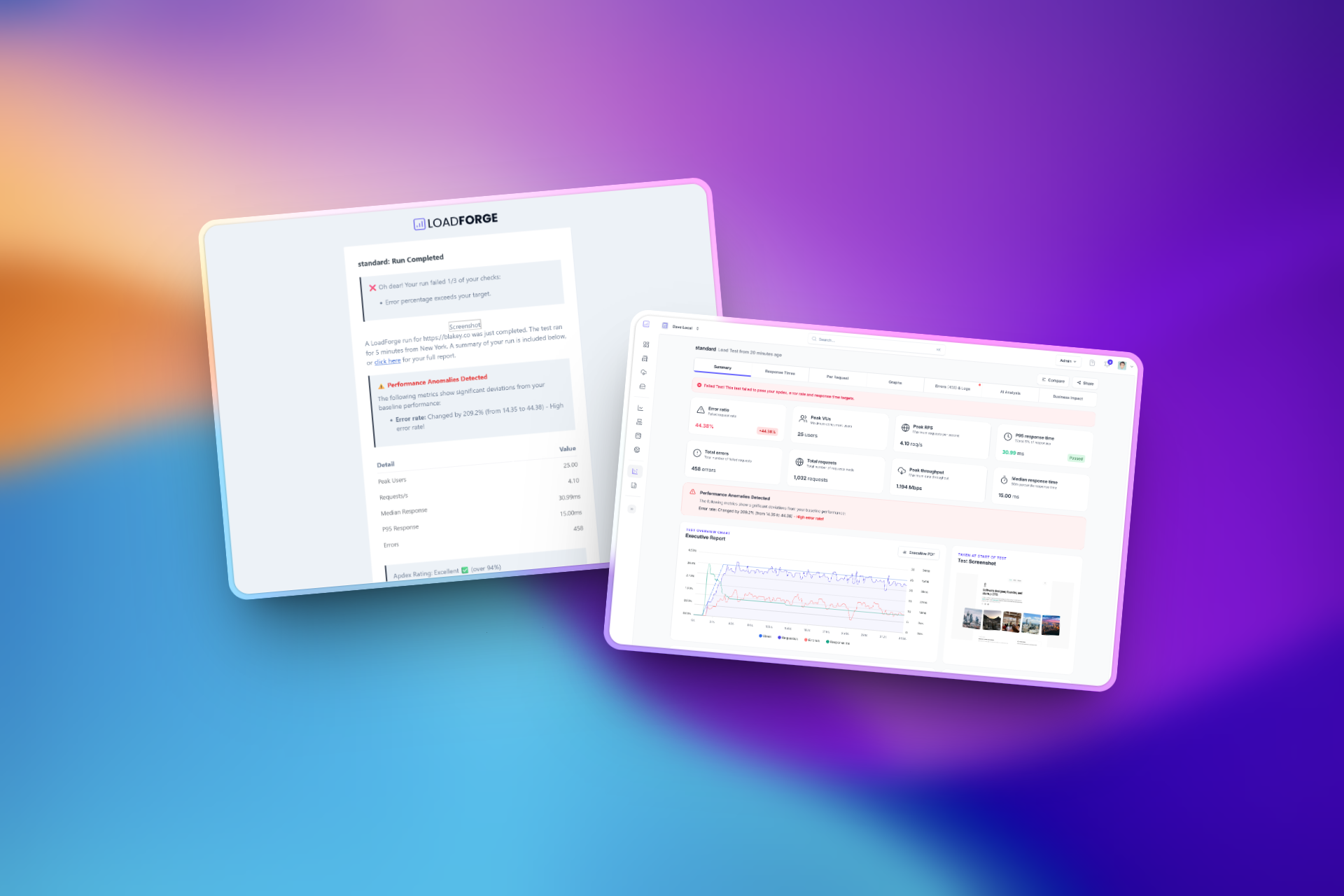
Explorer reports addition
We have added a new Explorer feature to reports, with a timeline scrubber and easy anomaly detection.
Load test static sites and resources automatically with crawlers.
Flexible testing including login, state, csrf and more for apps/APIs.
Flexible Python API testing, with wizards or python scripts.
Test posts, categories, content and more automatically.
Test your online store, products, checkout and more.
Load test your Prestashop ecommerce site at scale.
Test your Joomla site and components.
Load test your Drupal website, CMS, and modules.
Load test dynamic NextJS sites with ease.
Test React applications, components and APIs.
Test any REST API platform, with the most scalable testing platform.
Fully test GraphQL APIs at scale, from multiple locations.
LoadForge can test any HTTP/S website, API, or application. Learn more →
The #1 rated website load testing solution, learn why.
Test up to 4,000,000 concurrent virtual users on the largest platform.
Script a perfect test, or upload a swagger and start immediately.
Simple, but detailed reports on your sites performance.
Monitor Web Vitals, Lighthouse, and response times to improve SEO.
Test real user experience with Chrome browsers and Core Web Vitals.

We have added a new Explorer feature to reports, with a timeline scrubber and easy anomaly detection.

We have introduced a new AI executive summary on the Summary page of Run reports for all our clients.
TLDR: LoadForge has launched automatic anomaly detection that analyzes the last five test runs to set a performance baseline and alerts users of significant deviations in key metrics like response time and error rate via multiple channels.

We've just released automatic anomaly detection for all LoadForge tests!
Now, LoadForge automatically analyzes the last 5 runs of any test to establish a performance baseline. It then monitors for significant deviations in key metrics like:
When anomalies are detected, LoadForge will alert you in the run report, and via email, Slack, or other connected notification channels.
This is perfect for teams running scheduled weekly tests, allowing you to catch unexpected regressions or improvements—before your users do.
LoadForge Team
The LoadForge Team